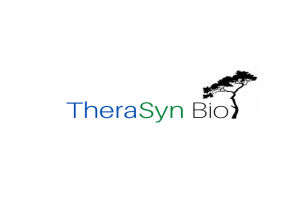Highlights
Prescient Therapeutics progresses PTX-100 into Phase 2a trials following favourable outcomes in early-stage testing
The company receives US FDA orphan drug and fast track designations for CTCL treatment
PTX-100 shows encouraging tolerance and efficacy with reduced incidence of severe side effects
Prescient Therapeutics (ASX:PTX), listed on the ASX 300, continues to deepen its presence in clinical oncology with the advancement of lead candidate PTX-100 into Phase 2a trials. The company is targeting the treatment of cutaneous T-cell lymphoma (CTCL), a complex and rare form of non-Hodgkin’s lymphoma that impacts the skin and other organs.
The biotechnology group has outlined its strategy to disrupt the broader oncology market through clinical-stage precision therapies and novel cell platforms.
Favourable Outcomes Reported in Phase 1b Trial of PTX-100
PTX-100 has shown positive safety and efficacy results in its earlier trial stage, addressing the need for less invasive and more tolerable treatments for CTCL. The therapy demonstrated disease control in a majority of participants, with minimal reports of severe side effects.
The treatment has been highlighted as a well-tolerated option, particularly important in a patient group frequently affected by fragile health conditions and comorbidities. This performance has underpinned confidence in progressing the drug into the next phase of clinical testing.
FDA Designations Enhance Development Pathway
Prescient Therapeutics has secured both orphan drug and fast track designations from the US Food and Drug Administration. These recognitions are expected to support a more efficient path to commercialisation, offering regulatory advantages such as market exclusivity and reduced development timelines.
The company views these endorsements as central to its long-term strategy, allowing faster regulatory feedback and potential integration of pivotal study phases into the registration process.
Unmet Need in Cutaneous T-Cell Lymphoma Treatment Landscape
CTCL presents a distinct clinical challenge due to its skin-based onset and progression, often resulting in painful lesions and organ involvement. The rarity of the condition has led to limited innovation, with current therapies offering moderate efficacy but often accompanied by notable side effects.
Prescient Therapeutics aims to address this gap with PTX-100 by delivering a treatment that prioritises both efficacy and patient safety.
Broader Cell Therapy Pipeline in Development
Beyond PTX-100, Prescient Therapeutics is advancing its OmniCAR and CellPryme technology platforms. These assets are focused on improving the safety and function of CAR-T therapies—an area increasingly viewed as the future of cancer immunotherapy.
OmniCAR is designed to allow modular control of cell-based therapies, while CellPryme enhances cell production and effectiveness. These innovations aim to provide durable responses in difficult-to-treat cancers, expanding the utility of the company’s pipeline across tumour types.
Focus Maintained on Near-Term Clinical Execution
The company has stated that PTX-100 remains the core near-term focus as it progresses through its clinical program. The development of its CAR-T platforms continues in parallel, laying the groundwork for broader oncology applications in the long term.



